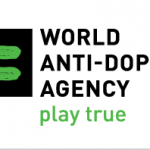Montreal, 16 October 2015: The World Anti-Doping Agency (WADA) announced today that it will urge governments to increase their efforts to help protect the rights of the clean athlete at the UNESCO Conference of Parties meeting, which will be held at UNESCO’s headquarters in Paris from 29-30 October.
The conference coincides with the 10th anniversary of the introduction of UNESCO’s International Convention against Doping in Sport; a global Convention drawn up in world-record time, which has allowed governments to formally recognise and adhere to the World Anti-Doping Code. The Convention, which was seen as a major breakthrough for anti-doping when it was created, has now been ratified by 183 of the world’s 195 UNESCO member states. At least five of these countries signed up this year, showing that there is significant impetus with the government commitment to clean sport.
“Governments have a crucial role to play in protecting the rights of clean athletes because they have the ability to reach areas that the sport movement cannot, such as the introduction of administrative practices, policies, rules, regulation and legislation that help reduce the trafficking and distribution of banned substances,” said WADA Director General, David Howman.
“With the introduction of the improved World Anti-Doping Code earlier this year, and in light of the very public doping issues we have all seen recently, now is the time for Governments to implement, that is to put words into action and prioritize anti-doping. This would send the right message to athletes and sport fans all around the world,” Howman added. “Only through coordinated action, with sport and governments giving their backing to anti-doping, can we succeed in levelling the playing field.”
Ministers from governments and public authorities will join representatives from WADA, the International Olympic Committee (IOC), the International Paralympic Committee (IPC), the Council of Europe (CoE), INTERPOL, the World Customs Organisation (WCO) and other anti-doping authorities at the UNESCO Conference of Parties meeting to discuss the progress made in the fight against doping in sport, and the main challenges that lie ahead.
The Conference will also provide a unique opportunity for State representatives to adopt innovative measures in order to strengthen the monitoring obligations of States Parties and to improve the governance model of the Conference of Parties.
The International Convention against Doping in Sport, which was adopted on 19 October 2005, is the practical instrument by which governments formalize their commitment to the fight against doping. Given that many governments cannot be bound by a non-governmental document such as the World Anti-Doping Code (Code), the Convention allows governments to align their domestic policies with the Code, thus harmonizing the rules governing anti-doping in sport and public legislation. —- WADA


Leave a Reply
You must be logged in to post a comment.